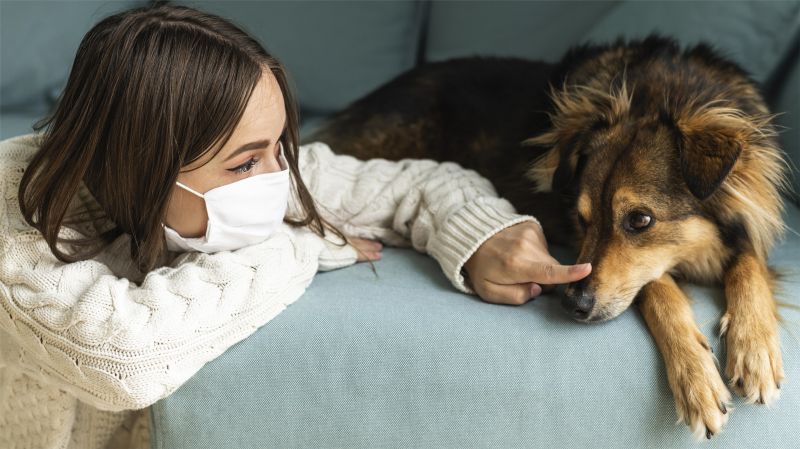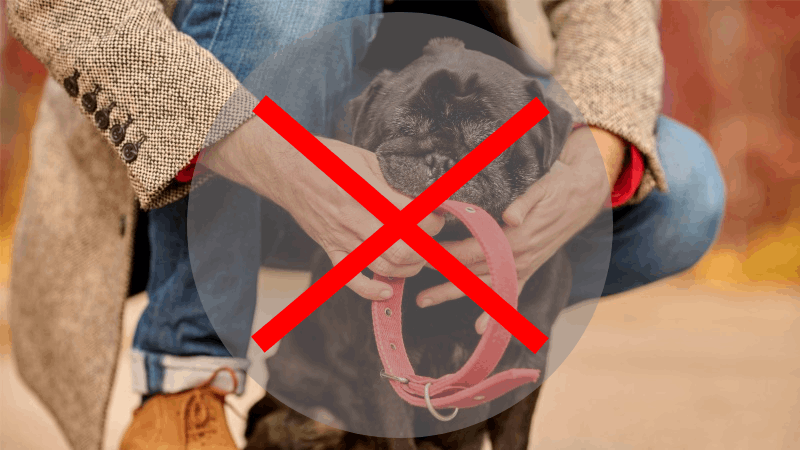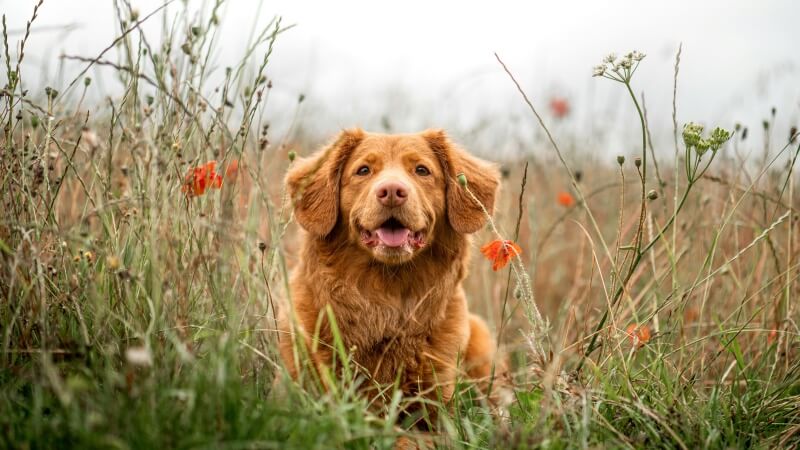
How To Craft A Cozy Cat Vest From Fabric Strips
Have you ever seen your feline friend lounging around and thought, “What could possibly make this picture more adorable?” The answer is simple: a cat

Hello, I’m Sophie. I write blogs for pettacticalharness.com. Today, I will share some personal insights on how to help a coughing dog. Let’s dive in.
Just as it is with us, our canine companions are bound to encounter a bout of coughing at various points throughout their lives.
More often than not, such a cough is a mere trifle—akin to the way we experience a common cold. While it may be a bother, marked by irritation or mild discomfort, it is largely innocuous and must simply be allowed to run its course.
Yet, it’s important to recognize that coughing can occasionally signal more grave conditions—heart issues, obstructions, pneumonia, or even cancer. Thus, if your dog appears under the weather, or if the cough persists, seeking ways to help a coughing dog with a veterinary consultation becomes imperative.
Typically though, a cough in dogs is a manifestation of a slight infection or irritation affecting the upper respiratory passages, and this can often be remedied within the comfort of your own home.
Even the infamous Kennel Cough, which rarely necessitates medical intervention (though it can), can cause your dog a great deal of discomfort and result in anxiety for you as an observer. Our aim, undoubtedly, is to extend as much relief and support to our dogs in these instances as possible, always considering the best practices for how to help a coughing dog.
Embrace the Fresh Air
The artificially warmed air within our homes can be quite arid, contributing to irritation of the airways. Fresh, natural air is invariably superior.
Ensure that your dog’s living spaces are amply aired out, and maintain a room temperature that is cozy, yet not excessively warm.
Draping moist cloths over heating elements can introduce much-needed humidity into the air, thereby soothing the air passages. In some cases, a humidifier can be exceptionally beneficial.
Steer Clear of Respiratory Aggravators
It should go without saying, but smoking indoors is a definitive no if you’re a pet (or child) owner. Smoke, even with an open window as a conduit, tends to find its way back inside. And for a dog currently afflicted by a cough, second-hand smoke will only exacerbate their respiratory irritation.
Household cleaners, fragranced air solutions, and even your personal grooming products can all act as irritants for your dog’s respiratory system.
It is advisable to limit your dog’s exposure to these substances.
Opt for Soft, Short Strolls
When your dog is dealing with a cough, it’s not the occasion for vigorous physical exertion. Favor leisurely, gentle walks instead.
Choose a Harness Over a Collar
Another practical tip on how to help a coughing dog is to choose a tactical dog harness over a collar. If your dog tends to tug on their leash, this can put undue stress on their already sensitive throat. A harness is a more considerate option during this time.

Warmth is Welcoming
Now is the time to bring out the doggy jackets. Those that shield the neck and throat are particularly beneficial. Your dog may also appreciate a light coat indoors or the comfort of being swaddled in a warm blanket.
Keep Up with Hydration
Always have fresh water available, replenishing it frequently. Dogs with a cough may salivate more, contaminating their water faster, which is not only unappealing but can also harbor bacteria.
Enhancing your dog’s water intake can be as simple as adding water or broth to their meals. If your dog is on a dry diet, you might consider transitioning to a wet food option.
A hydrated body is better equipped to ward off infections, leaving your dog feeling more vigorous.
Steam Therapy
Lastly, steam treatments, which help clear mucus from the airways, serve as a soothing solution in your efforts on how to help a coughing dog.
The simplest method is to run a hot shower or bath, allowing your dog to sit in the bathroom with the door closed to keep the steam in. A few droplets of high-quality lavender oil can be added to the water for its calming, anti-inflammatory, and antimicrobial properties.
Honey
This natural sweetener boasts antibacterial properties, enhances immunity, and is a balm for sore throats, making honey a genuine powerhouse.
Local, raw honey is the preferred choice. The buzz around Manuka honey often exceeds the reality, given the lack of stringent regulation in the industry.
I advocate supporting local apiarists, ensuring a premium product. Plus, local honey carries the added perk of potentially easing seasonal allergies.
Administer your dog a half to a full teaspoon of honey, diluted in a bit of warm water. You may serve it plain, mix it with their food, or incorporate it into a soothing sage tea.
Warm: Honey is not suitable for puppies under one year of age.
Sage
Sage, another powerful remedy that aligns with how to help a coughing dog, has been used historically for soothing sore throats.
Sage tea was a remedy my mother would employ for a sore throat during my youth. While we can’t instruct our dogs to gargle, sage serves equally well as tea. Sage mitigates inflammation in the oral and throat regions and acts as an antimicrobial agent.
Prepare a sage tea using 1 teaspoon of fresh sage per cup of boiling water. Ensure the tea is covered while steeping to preserve the essential oils, let it sit for 10 minutes, then strain and cool.
Administer approximately one-third of a cup per 10kg of your dog’s weight, divided into smaller doses over the course of the day.
Sage is to be avoided for pregnant dogs and nursing puppies, as it could induce contractions and diminish milk production. Outside of these scenarios, sage is incredibly safe.
When additional support is necessary, I find great value in marshmallow root and echinacea, and I take pride in my own bespoke concoction of herbal tinctures and syrups, which I frequently prescribe for canines with coughs.
The positive feedback from pet owners regarding its efficacy is a source of immense satisfaction for me.
And naturally, all the aforementioned advice is equally applicable to us humans when we’re grappling with a cough.
I am a firm proponent of nurturing our health and that of our dogs in the most natural ways possible—and often, the remedies that benefit us will benefit our animal companions just as effectively.
When your furry buddy starts coughing, seize the moment to smother them with extra love and care. Pull out their favorite snuggly blanket, ensure their water dish is always full, and perhaps offer a little honey — it’s all about making them feel secure and cherished.
They, just like us, relish a snug nook and some gentle fussing when they’re under the weather. With these pointers at hand, you’ll not only deepen the bond with your treasured companion but also become their hero, knowing exactly how to help a coughing dog bounce back to being their lively, joyful self in no time.


Have you ever seen your feline friend lounging around and thought, “What could possibly make this picture more adorable?” The answer is simple: a cat

The moment you consider a dog hunting vest for your adventurous companion, you’re stepping into a world where safety meets functionality. This vest is not

The concept of a dog cooling vest is a game-changer for pet owners looking to enhance their dog’s comfort during those relentless summer days. Imagine

When you first consider crafting a tactical dog vest, it’s not just about embarking on a fun DIY project; it’s about ensuring your furry companion’s

Have you ever seen your feline friend lounging around and thought, “What could possibly make this picture more adorable?” The answer is simple: a cat

The moment you consider a dog hunting vest for your adventurous companion, you’re stepping into a world where safety meets functionality. This vest is not

The concept of a dog cooling vest is a game-changer for pet owners looking to enhance their dog’s comfort during those relentless summer days. Imagine

When you first consider crafting a tactical dog vest, it’s not just about embarking on a fun DIY project; it’s about ensuring your furry companion’s
Secure and Empower, Walk Responsibly
Copyright © 2025pettacticalharness. All Rights Reserved.